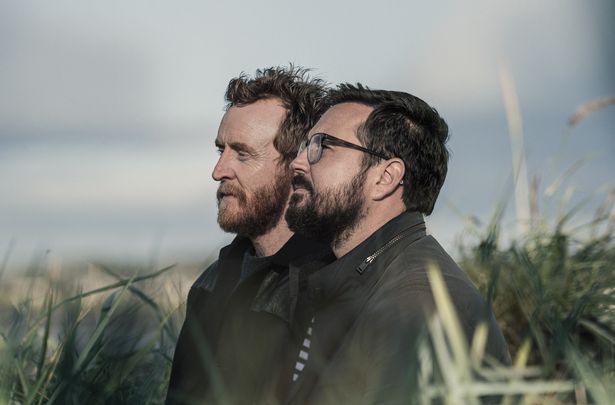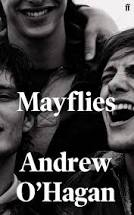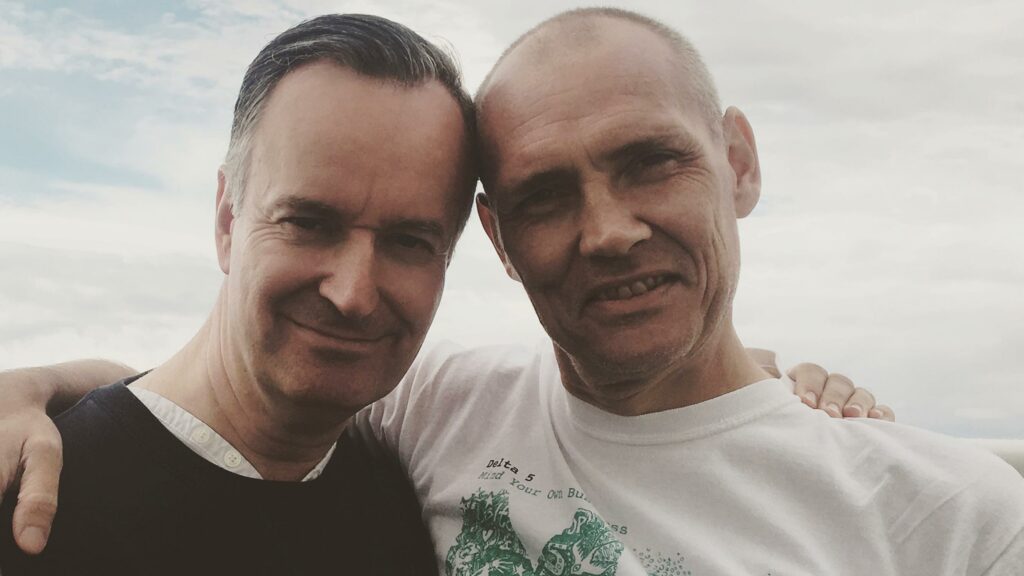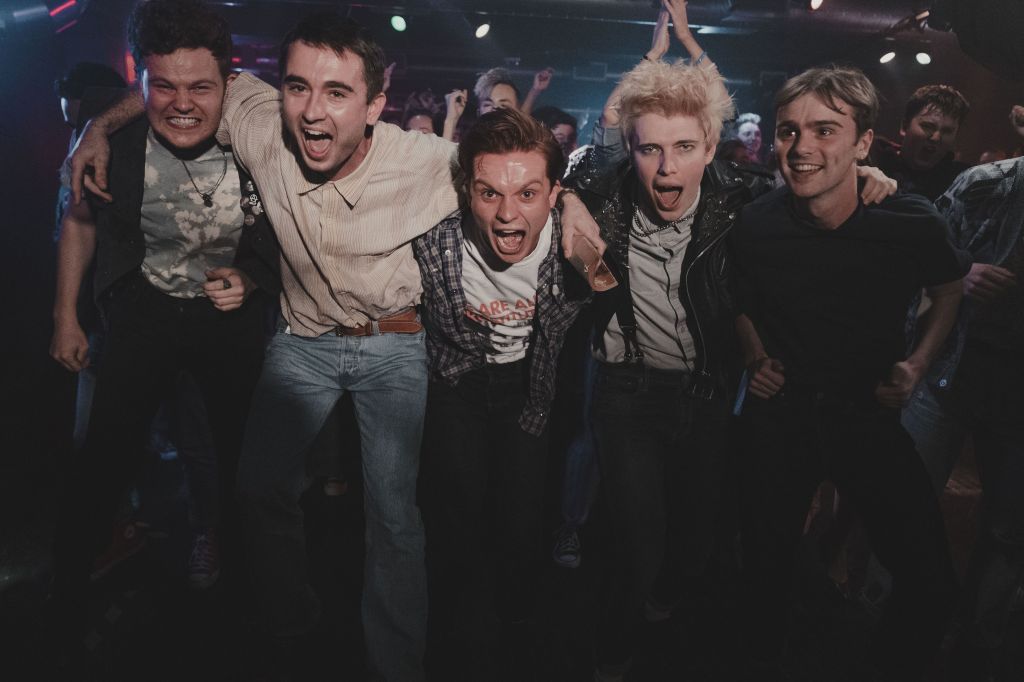
After the showing of the two part adaptation of Mayflies on BBC over Christmas, I thought it was a good time to revisit my original review of the book (first published on my other website, www.rjbarron.co.uk last year). It’s a great example, I think, of a TV adaptation being better than the book, although the book has a lot to like and admire. Here’s what I wrote, back in June 2021:
This book looked right up my street – an affectionate memoir of a group of seventeen-year old friends in Glasgow, forever bonded by their shared experience of growing up together as a band of brothers with their love of music holding them together. Then add to the mix a fast forward to contemporary Britain to see how they have fared in the intervening thirty-five years. It’s structured in two halves -then and now- and it’s almost brilliant. Almost, but not quite.

The first half, an evocative portrait of a group of friends on a mythical weekender to Manchester for a festival, with the obsession of the possibility of catching a glimpse of Morrisey in a club, is beautifully done. Anyone who experienced the salvation provided by a like-minded group of anti-establishment friends at that age, with the same passions, the same obsessions, the same devotions, will read this with a tear in their eye and a smile, as your own memories flicker in and out of focus. The power and significance of the music you listened to when you were seventeen – what pain, joy and agony it can conjure, even when catching a few bars of an obscure track in the gang’s playlist.
The main protagonist, destined to escape working class Glasgow life through his intelligence and determination (and, classically, the devotion of the ubiquitous English teacher who encouraged him and pushed him on his path) is a sympathetic character who is transformed into a very successful writer, critically acclaimed and living in a hipster’s paradise in a beautiful and expensive part of London. He has still remained connected to his roots, however, and to one friend in particular who stayed in Glasgow and who turned his talents to English teaching in a “Challenging “ school where he has spent his entire career, inspiring generations of abandoned Glaswegians through his teaching and his humanity.

The second part reveals very early on that Tully, the Head of English back in Glasgow, has been diagnosed with terminal cancer. From then on the remainder of the novel charts how James (“Noodle”) deals with this devastating news and helps Tully end his days at Dignitas. I hope that’s not a spoiler, but the publicity surrounding the novel made the story very clear. There is tremendous sadness and grief and nostalgia, as you would expect, and the novel does not shy away from the anger and unreasonableness people show in these testing situations.
Pic: Andrew O’Hagan
But. And it’s a big but. The second half goes on and on and on, seemingly without the watchful eye of an editor. And then I realised. This was autobiographical. This was O’Hagan’s story. And the novel had become a therapeutic exercise for him, whereby every detail was included because the memory of his part of the second half was too significant to leave anything else out. I googled it, and it was true. This was O’Hagan’s story, almost word for word, and just a year or so earlier. And Tully was, in fact, Keith Martin, his boyhood friend. So O’Hagan deals with grief so recent, it’s still raw and it completely clouds his judgement.
It’s a familiar problem for a novelist, when you are casting around in your own autobiography for material for a novel and the first draft includes a load of stuff that is oh so significant to you, but which means diddly squat to your readers. And the editor was too sensitive to point it out. Or O’Hagan was too blinkered and determined to listen. It’s a pity. I reckon that if O’Hagan had waited a for a few years, he would have written a masterpiece, with the benefit of some perspective.

Pic: O’Hagan with Keith Martin in 2018 (right)
But then, sometimes, what the reader needs is irrelevant. The writer’s human too. And if Andrew O’Hagan needed to write this book to work through his grief, who am I to carp, because it wasted half a day of my time. The friendship he delightfully and brilliantly portrays , a friendship we can probably all replicate in our own back story, deserves the epitaph O’Hagan decides to give it, in his own way and in his own terms. Narrative arc can sometimes take a back seat.
Post script:

The distance between the events portrayed and the writing of the TV script, with the urgent, autobiographical recording of the novel in between, has done the trick, I reckon. And I don’t think it’s insignificant that the adaptation was written by Andrea Gibb, not O’Hagan himself. Mediating traumatic events through a third person has brought much needed perspective, while retaining the raw emotion of the story.
It’s a great piece of work. And the first half of the novel, with its portrait of the obsessive, bonding passions of the gang of seventeen year old friends, remains a beautiful, luminous, evocative piece of writing.
